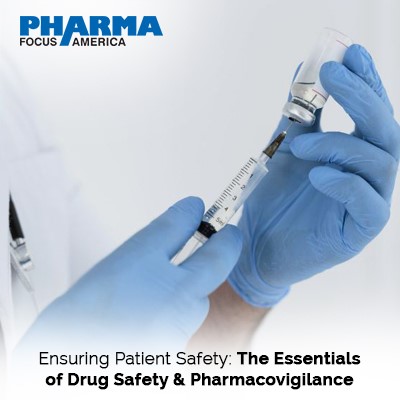views
Ensuring Patient Safety: The Essentials of Drug Safety & Pharmacovigilance

Introduction
Drug safety and pharmacovigilance are critical components of healthcare systems worldwide. They play a vital role in monitoring the safety and efficacy of medications, ensuring that patients receive treatments that are both effective and safe. In this article, we'll delve into the key aspects of drug safety and pharmacovigilance, including their importance, processes involved, challenges faced, and future trends.
The primary goal of drug safety is to protect patients from harm caused by adverse drug reactions (ADRs) and ensure the overall safety and effectiveness of medications. It involves identifying, evaluating, and mitigating risks associated with pharmaceutical products throughout their lifecycle, from preclinical development to post-market surveillance.
Pharmacovigilance, on the other hand, is the science and activities related to the detection, assessment, understanding, and prevention of adverse effects or any other drug-related problems. It encompasses various processes, such as monitoring adverse events, collecting and analyzing data, and taking appropriate regulatory actions when necessary.
Processes Involved in Drug Safety & Pharmacovigilance
The drug safety and pharmacovigilance process begins with preclinical studies, where potential risks and safety profiles of new drugs are evaluated in laboratory settings. This is followed by clinical trials, where drugs are tested on human subjects to assess their safety and efficacy under controlled conditions.
Once a drug is approved and enters the market, pharmacovigilance activities continue to monitor its safety in real-world settings. Healthcare professionals and consumers can report adverse events through various channels, such as pharmacovigilance databases, regulatory agencies, and pharmaceutical companies.
data collected from these reports is analyzed to identify potential safety signals or trends. Signal detection involves statistical analysis and data mining techniques to uncover patterns of adverse reactions that may indicate safety concerns. These signals are then further evaluated through causality assessment to determine the likelihood of the drug causing the adverse event.
Challenges in Drug Safety & Pharmacovigilance
Despite advancements in drug safety and pharmacovigilance, several challenges persist in ensuring comprehensive patient safety. One of the major challenges is underreporting of adverse events, which can lead to delayed detection of safety issues. Healthcare professionals may not always recognize or report adverse reactions, and patients may hesitate to report them due to various reasons, including lack of awareness or fear of consequences.
Another challenge is the complexity of pharmacovigilance data, which often involves large volumes of heterogeneous data from diverse sources. Analyzing and interpreting this data requires sophisticated tools and techniques, as well as expertise in data management and analysis.
Follow us:






















Comments
0 comment